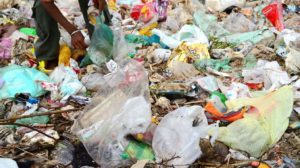McKinsey.org is exploring the challenge of how cities manage waste. Unmanaged waste causes climate change and air, water and land pollution—it is often the most impoverished urban communities that are worst affected.
McKinsey.org is a new nonprofit, founded by McKinsey & Company, to have lasting and substantial impact on complex social challenges.
It will be an incubator for new, scalable solutions to social issues that works by applying McKinsey’s capabilities and by partnering with leaders from the private-, public- and social-sectors.
“Today we’re embarking on a journey to build a new organization, and starting to explore the areas where we think we can make a real difference on critical global issues, like the sustainability challenges facing cities around the world, which are putting communities’ health and livelihoods—and our environment—at risk,” explains Mona Mourshed, McKinsey.org’s CEO.

Mona is a Senior Partner and Head of Global Social Responsibility at McKinsey & Company. She is also the CEO of Generation, a nonprofit founded by McKinsey in 2014 to tackle global youth unemployment. McKinsey.org, which takes on the work of McKinsey Social Initiative, will become a cornerstone of McKinsey’s long-standing commitment to social impact and its aspiration to help build better societies.
Helping sustainable cities tackle their waste challenge
As the number of people living in urban areas continues to increase, McKinsey.org is exploring how it can help to address the sustainability challenges this is posing for cities across the world. Cities generate over 70% of the world’s carbon emissions and 10 billion tons of solid waste. It is often the most impoverished urban communities that are worst affected by the effects of climate change and air, water and land pollution.

“We’re looking first at how cities can recycle their waste, particularly plastics and organic materials, like food or garden waste,” explains Shannon Bouton, who is leading McKinsey.org’s work on sustainable cities. “The world generates 3.5 million tons of solid waste every day, a figure that has increased 10 times over the last century and is growing rapidly. Cities around the world are struggling with overflowing landfills and the health and environmental impacts of uncollected, untreated waste.”
Organic and plastic waste can be recycled but, unmanaged, it has harmful consequences for the environment, public health and the economy. Organic waste in landfill is a major source of methane, a greenhouse gas 86 time more potent than carbon dioxide. Plastics often end up in the world’s oceans or release toxic chemicals when burned.
The devastating health effects caused by these toxins can be avoided. Recycling recognizes the value inherent in these materials, puts them back into the supply chain, avoids both global and local pollution, and creates formal employment for some of the most disenfranchised members of society.
McKinsey.org will work with NGOs, governments and businesses to help develop best practices that are already emerging, to prove the economic, environmental and social benefits of recycling, so that they can be scaled across the world, improving the lives of citizens exposed to the effects of air pollution and climate change.
